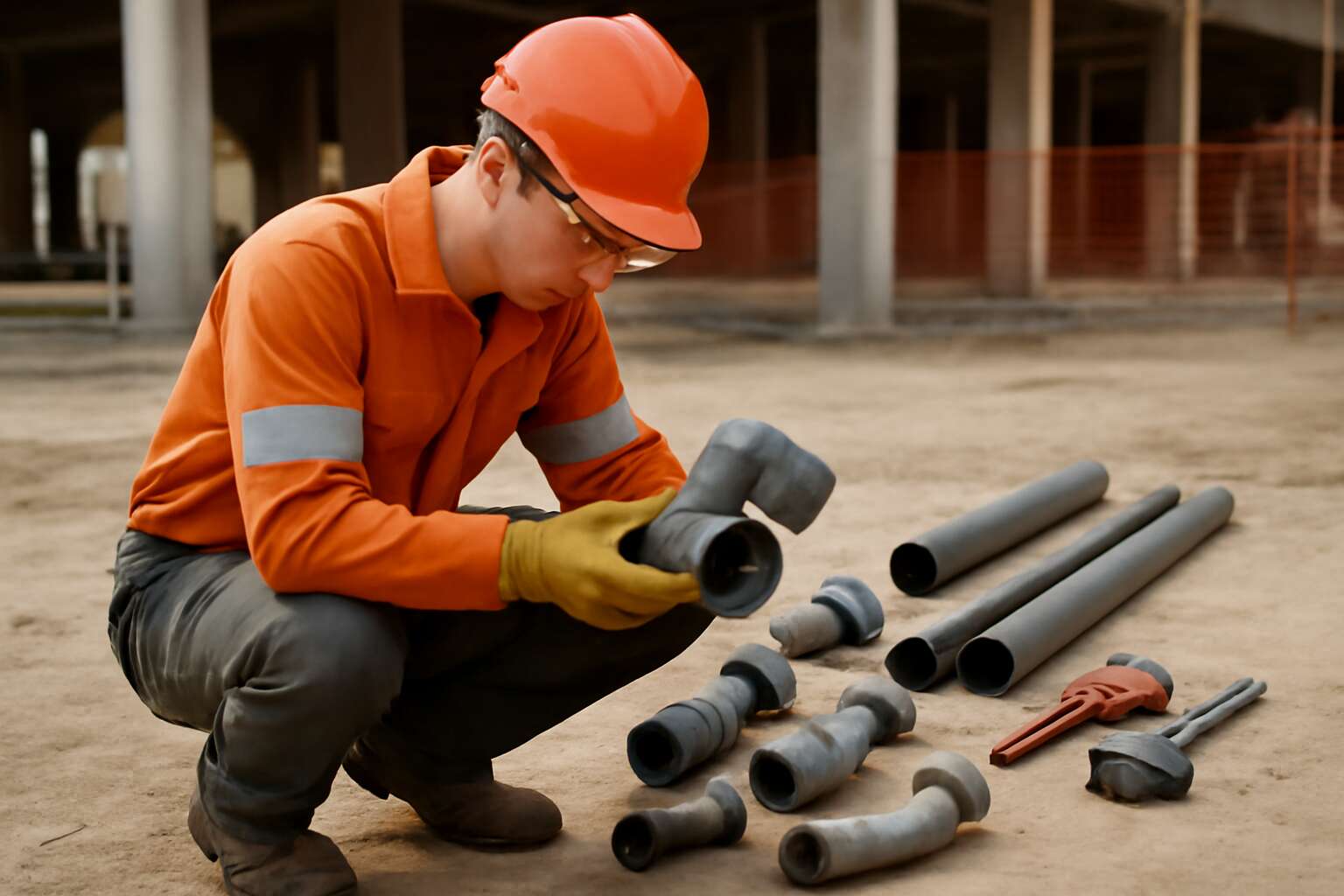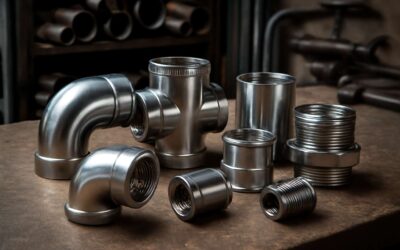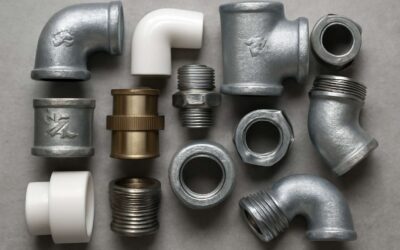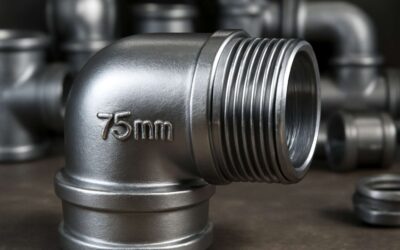Understanding Pipe Fitting Apprentice Roles
Definition of a Pipe Fitting Apprentice
In the bustling world of trade apprenticeships, few roles are as vital—and as underestimated—as that of the pipe fitting apprentice. These eager newcomers are the unsung heroes of plumbing and piping systems, wielding wrenches and dreams in equal measure. A pipe fitting apprentice provides the foundation for a career that combines craftsmanship with technical finesse, often working under the watchful eye of seasoned professionals who, frankly, could fill a small library with their accumulated wisdom.
Understanding pipe fitting apprentice roles begins with recognising that these positions are designed to nurture skill, patience, and a keen eye for detail. An apprentice isn’t just handed a pipe and told to get on with it; they are immersed in a comprehensive process that covers the essentials of pipe assembly, welding, and safety protocols. This hands-on experience is where theory transforms into tangible expertise. The journey typically involves a mix of classroom instruction and real-world application, ensuring that each apprentice graduates with a toolbox of practical skills ready to tackle complex piping challenges.
Responsibilities and Daily Tasks
In the world of pipe fitting apprentice jobs, no two days are quite the same—unless you’re counting the endless supply of pipe lengths and stubborn fittings that inevitably test your patience. These roles are the backbone of any plumbing or piping operation, and their responsibilities extend far beyond mere wrench-wielding. A pipe fitting apprentice’s daily routine might involve deciphering intricate blueprints, measuring with a precision that would make a jeweller jealous, or tightening fittings with the focus of a detective cracking a code.
One of the key responsibilities in pipe fitting apprentice jobs is ensuring that every connection is secure and leak-proof. This involves a mix of tasks such as cutting pipes to size, assembling components, and sometimes welding, which is a skill learned only after many hours of supervision. Daily tasks can include:
- Reading technical diagrams and blueprints to understand piping layouts
- Measuring, cutting, and shaping pipes with a variety of specialised tools
- Installing pipes in tight, often awkward spaces, sometimes requiring a contortionist’s flexibility
While the work can be physically demanding, it’s also an educational journey. Apprentices often find themselves troubleshooting unexpected kinks in the system or adjusting fittings to ensure everything aligns perfectly. It’s a dynamic role that demands both patience and a willingness to get your hands dirty, all while learning the fine art of pipe fitting from seasoned professionals who have seen it all—twice.
Key Skills and Qualifications Needed
Understanding the core skills and qualifications needed for pipe fitting apprentice jobs is essential for anyone aspiring to carve out a successful career in this craft. These roles demand a combination of technical aptitude, physical dexterity, and a keen eye for detail. Apprentices must quickly develop a solid foundation in reading technical diagrams, interpreting blueprints, and mastering the use of specialised tools — skills that are invaluable when working in tight, often challenging spaces.
While formal qualifications such as a relevant technical certificate or NVQ can certainly give candidates an edge, a genuine willingness to learn and a resilient attitude often matter more. Patience and perseverance are key, especially when mastering complex techniques like welding or adjusting fittings in awkward positions. These traits, combined with a basic understanding of safety protocols, form the bedrock of success in pipe fitting apprentice jobs.
In addition, certain key skills stand out:
- Precision measurement and cutting
- Problem-solving capabilities
- Strong manual dexterity
- Ability to follow detailed instructions
For those eager to step into the world of pipe fitting, possessing these capabilities can make a significant difference in securing and excelling within pipe fitting apprentice jobs, setting the stage for a rewarding career in plumbing and piping systems.
How to Find Pipe Fitting Apprentice Jobs
Job Search Strategies – Array
Securing pipe fitting apprentice jobs demands more than just a cursory glance at job boards; it requires a strategic approach rooted in both persistence and finesse. In a landscape where competition is fierce, understanding where and how to search can make all the difference. The first step often involves tapping into local trade schools and vocational centres, which frequently partner with industry professionals to offer pathways into pipe fitting apprenticeships. Networking within industry circles—be it through trade shows, industry forums, or social media platforms—can uncover hidden opportunities that aren’t advertised publicly.
Moreover, direct outreach remains a powerful tool. Sending tailored applications to plumbing and construction firms demonstrates initiative and can often set an applicant apart. For those who thrive on organisation, creating a targeted list of potential employers and systematically tracking their responses can streamline the process. Remember, each application is a reflection of dedication, and in the realm of pipe fitting apprentice jobs, tenacity often proves as vital as technical aptitude.
Qualifications and Certifications Required – Array
Securing pipe fitting apprentice jobs isn’t just about showing up with a wrench and a hopeful smile — qualifications and certifications are the secret sauce that can turn a long shot into a given. While hands-on experience is invaluable, industry authorities also look for specific credentials that prove you’re serious about the craft. The good news? Many of these qualifications are achievable with a bit of dedicated study and some practical effort.
Most aspiring pipe fitting apprentices will need a high school diploma or equivalent to even get their foot in the door. From there, completing a recognised trade programme or vocational training course can significantly boost your chances. Key certifications often include the Level 2 or 3 NVQ in Pipe Fitting or Plumbing, which validate your technical competence. Some employers also value safety training certifications such as CITB or CSCS cards, ensuring you understand the ins and outs of health and safety protocols on-site.
In addition, certain specialised skills—like welding or working with particular materials—might require extra certifications, but they can make you stand out in the competitive field of pipe fitting apprentice jobs. Remember, your quest for the perfect apprenticeship isn’t just about getting trained; it’s about demonstrating that you’re ready to tackle the challenges of the trade with professionalism and a dash of grit!
Benefits of Pursuing a Pipe Fitting Apprenticeship
Hands-On Experience and Practical Training
There’s an undeniable charm in learning a craft that demands both precision and ingenuity. Pursuing pipe fitting apprentice jobs offers a unique blend of hands-on experience and practical training that transforms raw enthusiasm into expert craftsmanship. Unlike the sterile environment of theory-based learning, this apprenticeship immerses you in real-world scenarios, where every pipe and fitting tells a story of problem-solving and meticulous attention to detail.
What sets this path apart is the invaluable exposure to actual work sites, enabling apprentices to develop a keener understanding of materials, tools, and safety protocols. The benefits extend beyond skill acquisition; they foster a professional confidence that can only be cultivated through doing. For those eager to carve out a niche in the trades, the practical training received during pipe fitting apprentice jobs is a cornerstone of career development, ensuring that graduates are not just knowledgeable but truly adept in their craft.
Career Development Opportunities
Pursuing a career through pipe fitting apprentice jobs opens a gateway to unparalleled professional development. The real beauty of this pathway lies in the transformative journey from novice to skilled craftsman, where each project offers a chance to refine your expertise. The benefits extend far beyond the initial training; they lay a foundation of confidence rooted in tangible experience and mastery of industry standards.
One of the most compelling advantages of this apprenticeship is the exposure to diverse work environments, fostering adaptability and a deep understanding of materials and techniques. It’s an odyssey of growth, where hands-on involvement cultivates a nuanced appreciation for safety protocols and intricate problem-solving. The journey often includes structured progression, such as:
- Gaining specialised skills in pipe installation and maintenance
- Developing an eye for detail that ensures precision in every fit
- Building a professional network within the trades community
Ultimately, pipe fitting apprentice jobs are more than just a stepping stone—they are a conduit to long-term career development, where each day on-site becomes a chapter in your story of craftsmanship and perseverance. This voyage into the world of pipe fitting promises not only skill mastery but a chance to shape a future filled with opportunity and pride.
Competitive Pay and Benefits
One of the standout perks of pursuing pipe fitting apprentice jobs is the competitive pay and benefits package that often accompanies this vocational route. Unlike many entry-level roles, apprenticeships in pipe fitting offer a solid income from day one, recognising the valuable skills you’re acquiring along the way. It’s not just about earning; it’s about earning well while learning essential trade skills.
Many employers also provide a suite of benefits, including health insurance, paid leave, and sometimes even tools and uniforms—making the journey into the pipe fitting trade as smooth as a freshly soldered joint. Plus, the pay scales tend to increase as you gain more experience and specialise in areas like pipe installation or maintenance. With such financial stability, apprentices can focus on honing their craft without the nagging worry of making ends meet.
In essence, pipe fitting apprentice jobs deliver a rewarding combination of skill development and financial security, transforming eager novices into confident professionals—ready to take on the industry’s most complex projects with a smile and a wrench in hand.
Pathway to a Skilled Trade
Embarking on a journey through pipe fitting apprentice jobs unveils a pathway rich with promise and purpose. The benefits transcend mere financial rewards, touching the very core of personal and professional growth. An apprenticeship offers a unique blend of structured learning and practical experience, transforming eager novices into skilled craftsmen.
The allure of this vocational route lies in its capacity to cultivate specialised expertise while providing a stable income. Many employers recognise the value of nurturing talent, often including benefits such as comprehensive health insurance, paid leave, and the provision of essential tools. This safety net allows apprentices to focus wholeheartedly on developing their craft, confident in the knowledge that their efforts are recognised and rewarded.
Furthermore, the progression inherent in pipe fitting apprentice jobs often follows a clear trajectory. As skills deepen, so too do opportunities for advancement—whether into pipe installation, maintenance, or supervisory roles—making this career pathway as resilient as the pipes themselves. In truth, pursuing a pipe fitting apprenticeship is more than a job; it’s a gateway to mastering a trade that shapes infrastructure and sustains communities.
Key Industries Hiring Pipe Fitting Apprentices
Construction and Infrastructure
Construction and infrastructure sectors are the heartbeat of economic development, and they are currently experiencing a surge in demand for skilled tradespeople. Among the most sought-after positions are pipe fitting apprentice jobs, which serve as the foundation for a rewarding career in plumbing and pipework installation. These industries are integral to building resilient cities, ensuring water supply, sewage systems, and industrial piping are all functioning seamlessly. As urban areas expand and infrastructure projects multiply, the need for dedicated pipe fitting apprentices has never been higher.
Major construction firms and infrastructure projects actively seek out aspiring pipe fitters to join their teams. These roles often involve working on large-scale projects such as bridges, tunnels, and commercial developments, where precision and expertise are paramount. To streamline recruitment, many companies focus on candidates with a strong work ethic and a passion for hands-on work, recognising that practical skills are as vital as theoretical knowledge.
- Construction firms
- Municipal infrastructure projects
- Industrial facilities
- Renewable energy plants
Whether it’s installing complex piping systems in a new hospital or upgrading water mains across a city, pipe fitting apprentice jobs are at the forefront of shaping modern infrastructure. This vibrant industry offers a pathway to a skilled trade that is both challenging and highly rewarding. The ongoing development of urban environments ensures that opportunities for growth and specialised training remain plentiful for those eager to learn and excel in this vital field.
Manufacturing and Industrial Plants
In the bustling realm of manufacturing and industrial plants, pipe fitting apprentice jobs are more than entry-level positions; they are gateways to mastering an art that keeps the gears of industry turning. These roles are vital in the installation, maintenance, and repair of intricate piping systems that fuel factories, power plants, and processing facilities. As industries evolve, the demand for skilled pipe fitters who can navigate complex designs and high-pressure environments continues to surge.
Major industrial facilities seek apprentices who possess a keen eye for detail and a passion for precision. Whether installing sophisticated piping in a chemical plant or upgrading systems in a food processing facility, pipe fitting apprentice jobs offer an immersive experience. Often, these positions involve working with a variety of materials—steel, copper, and plastic—requiring adaptability and technical finesse.
- Power generation plants
- Manufacturing factories
- Oil and gas refineries
- Pharmaceutical manufacturing units
The industrial sector’s relentless expansion makes pipe fitting apprentice jobs an alluring pathway to a resilient and highly specialised trade. The work is demanding, yes, but it offers a chance to be part of projects that shape the backbone of modern industry—silent yet essential, precise yet powerful.
Oil and Gas Sector
The oil and gas sector stands as a formidable titan within the realm of industrial progress, embodying both challenge and opportunity for aspiring pipe fitting apprentices. In this domain, precision and resilience are paramount, as intricate piping systems snake through sprawling refineries and offshore platforms, channeling the lifeblood of energy production. These environments demand a mastery of welding, threading, and assembly—skills honed through pipe fitting apprentice jobs that are as demanding as they are rewarding.
As the world’s appetite for energy intensifies, so too does the need for skilled pipe fitters capable of navigating complex designs and high-pressure environments. Major oil and gas refineries are actively seeking apprentices who can adapt to evolving technologies and materials, such as corrosion-resistant alloys and flexible plastics. The journey into this sector not only promises a resilient career, but also offers the chance to be at the forefront of energy infrastructure development, where every pipe laid fuels the engines of civilisation.
HVAC and Plumbing Services
In the shadowy corridors of the HVAC and plumbing services industry, opportunities for pipe fitting apprentice jobs flourish beneath the surface of everyday visibility. These positions beckon those who possess a curious mind and an unwavering resolve to master the arcane craft of piping systems. From intricate ductwork in sprawling commercial edifices to the labyrinthine plumbing networks within towering skyscrapers, the demand for skilled apprentices continues to grow.
Within these industries, the apprentice’s journey is marked by immersion in high-stakes environments where precision is paramount. Whether installing modern climate control systems or ensuring the seamless flow of water and waste, the role demands a keen eye for detail and an understanding of complex schematics. The evolving landscape of HVAC and plumbing services offers a fertile ground for growth, with many companies actively seeking aspiring pipe fitters eager to carve their path through hands-on experience and specialised training.
Tips for Applying and Excelling in Pipe Fitting Apprenticeship Programs
Preparing a Strong Application
Securing a pipe fitting apprentice job is akin to planting a seed in fertile soil—requiring patience, precision, and a touch of passion. When preparing your application, attention to detail transforms a simple resume into a compelling narrative that captures the essence of your dedication. Highlight your enthusiasm for learning the intricate dance of pipes and fittings, and don’t shy away from showcasing any practical experience, even if gained informally.
Crafting a strong application involves not only listing qualifications but also weaving a story of commitment to this esteemed trade. A well-structured cover letter can serve as your voice, demonstrating your eagerness to master the craft and contribute to the sector’s vital infrastructure. Remember, in the realm of pipe fitting apprentice jobs, your enthusiasm can be the key to unlocking doors—so let it shine through every word and detail.
Interview Tips
Landing a pipe fitting apprentice job isn’t solely about demonstrating technical aptitude; it’s about conveying a genuine passion for the craft that resonates with hiring managers. When applying, ensure your submission reflects meticulous attention to detail—every word and detail should reinforce your dedication and eagerness to learn. An engaging cover letter, personalised and sincere, can serve as a compelling testament to your motivation, setting you apart in a competitive pool of candidates.
During interviews for pipe fitting apprentice jobs, preparation is your most potent weapon. Familiarise yourself with the sector’s intricacies—be it construction, manufacturing, or HVAC—and craft responses that showcase your commitment to mastering this vital trade. Remember, interviewers value not only technical curiosity but also your ability to think critically about problem-solving and teamwork. To excel, consider these tips:
- Research the company’s projects and values thoroughly to demonstrate genuine interest.
- Prepare to discuss any practical experience, no matter how informal, that highlights your proactive approach to learning.
- Practice clear and confident communication, ensuring your enthusiasm for pipe fitting apprentice jobs shines through.
Ultimately, your goal is to translate your passion into a compelling narrative that convinces employers you are the apprentice they’ve been searching for—ready to embrace the challenges and opportunities within this intricate trade. With strategic preparation and authentic engagement, your journey toward becoming a skilled pipe fitter gains momentum, opening doors to a rewarding career in this essential industry sector.
Success in the Program – Array
Applying for pipe fitting apprentice jobs can be competitive, but a strategic approach can make all the difference. Crafting a tailored application that highlights your enthusiasm, attention to detail, and eagerness to learn sets you apart from other candidates. Your cover letter should reflect genuine passion for the trade and demonstrate your understanding of the industry’s demands.
Success in pipe fitting apprenticeship programs often depends on your ability to show adaptability and a proactive attitude. During the application process, consider these key tips:
- Research the company thoroughly, understanding their current projects and core values.
- Highlight any practical experience, even if informal, that showcases your commitment to developing relevant skills.
- Prepare clear, confident responses that convey your problem-solving abilities and teamwork spirit.
Excelling within the programme hinges on your dedication to continuous learning and your willingness to embrace challenges. Staying engaged, asking questions, and seeking mentorship can accelerate your growth and help you secure a rewarding career in this vital trade. By approaching every step with authenticity and purpose, you enhance your chances of thriving in the competitive arena of pipe fitting apprentice jobs.
Career Pathways After Completing a Pipe Fitting Apprenticeship
Journeyman Pipe Fitter
Once you’ve earned your stripes as a pipe fitting apprentice, the next step is to elevate your career to the seasoned ranks of a journeyman pipe fitter. This transition isn’t just a badge of honour; it’s a gateway to higher-paying jobs, more complex projects, and the chance to truly master the craft. According to industry insiders, journeyman pipe fitters are the backbone of critical infrastructure, ensuring everything from water systems to industrial plants run smoothly.
With this level of expertise, you can specialise in sectors like construction and infrastructure, manufacturing and industrial plants, or even dive into the oil and gas sector. Many journeymen opt to broaden their horizons by taking on supervisory roles or pursuing certifications that open doors to managerial positions. Ultimately, becoming a journeyman pipe fitter doesn’t just mean better pay — it’s about cementing your place in a skilled trade that keeps the world turning.
Specialization Opportunities – Array
Embarking on a journey through pipe fitting apprentice jobs opens a world of specialised avenues, where skills are honed and careers flourish. After gaining foundational experience, many apprentices are eager to explore niche sectors that demand unique expertise. Specialisation opportunities abound in areas such as industrial construction, where precision can determine the success of complex projects, or within manufacturing plants, ensuring seamless operations that keep the economy moving. For those with a pioneering spirit, the oil and gas sector offers challenging yet rewarding pathways.
Further development often involves targeted training, certifications, and hands-on experience, which can lead to roles like pipe welding technician, safety supervisor, or project coordinator. These pathways not only elevate your professional profile but also deepen your understanding of intricate piping systems. In fact, many seasoned professionals find that diversifying their skills through specialised training enhances their employability and earning potential within the realm of pipe fitting apprentice jobs.
Further Certifications and Continuing Education
Once the shadows of your apprenticeship have been cast aside and the echoes of your labour fade into the distant clang of progress, a new chapter begins—one carved through further certifications and relentless pursuit of knowledge. For those who have embraced the dark beauty of pipe fitting apprentice jobs, the path to mastery is paved with specialised training that unlocks a labyrinth of career possibilities.
Progressing beyond basic skills, many forge their way into advanced credentials—be it through recognised certifications or specialised courses in welding, safety, or project management. These qualifications serve as keys to more intricate roles, such as pipe welding technician or safety supervisor, each demanding a deeper understanding of the piping underworld.
In the pursuit of excellence, some delve into continuing education, exploring niche sectors like industrial construction, manufacturing plants, or the oil and gas sector. This relentless quest not only expands their skill set but also enhances employability, ensuring their place amidst the shadows of industry giants.
For the ambitious, the journey may involve selecting from a variety of specialised pathways, including:
- Steel and stainless steel pipe fitting in industrial settings
- Advanced corrosion protection techniques
- High-pressure pipe systems for petrochemical plants
Each step taken in further certifications deepens the understanding of complex piping systems, transforming apprentices into masters of their craft. The darkness of the trade holds secrets, but those who seek them out find that the rewards—both in skill and in earning potential—are worth every shadow cast along the way.
Advancement to Supervisor or Contracting Roles
After honing their skills through pipe fitting apprentice jobs, many journey towards leadership roles that shape the very blueprint of infrastructure. Progressing into supervisory or contracting positions transforms a talented apprentice into a pivotal figure in the industry’s evolution. These roles require a mastery not only of technical skills but also of project management and leadership finesse, opening doors to command large teams and oversee complex piping projects.
With experience and further certifications, advanced pipe fitters often step into roles such as site supervisor or contract manager. They become the guiding force behind large-scale industrial installations, petrochemical facilities, or high-pressure systems. Such career pathways are marked by increased responsibilities and, naturally, higher remuneration.
For those eager to ascend, the journey might involve structured progression:
- Mastering specialised sectors like high-pressure pipe systems or corrosion protection
- Gaining project management credentials
- Building a reputation in sectors like oil and gas or industrial manufacturing
The allure of these advanced roles lies in the unique blend of technical mastery and strategic oversight, making every pipe fitting apprentice job a foundational stone in a career that can reach dizzying heights.




0 Comments